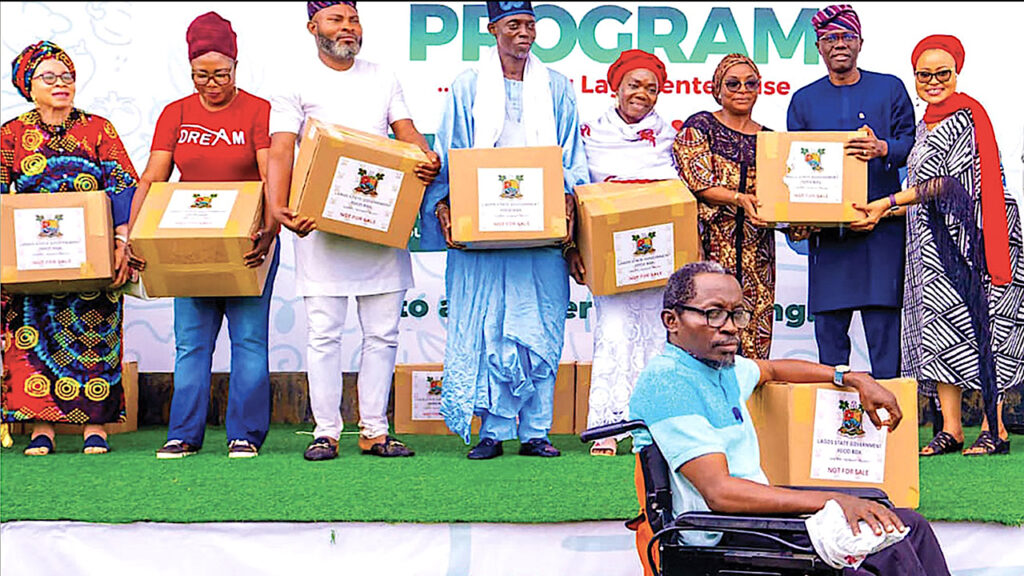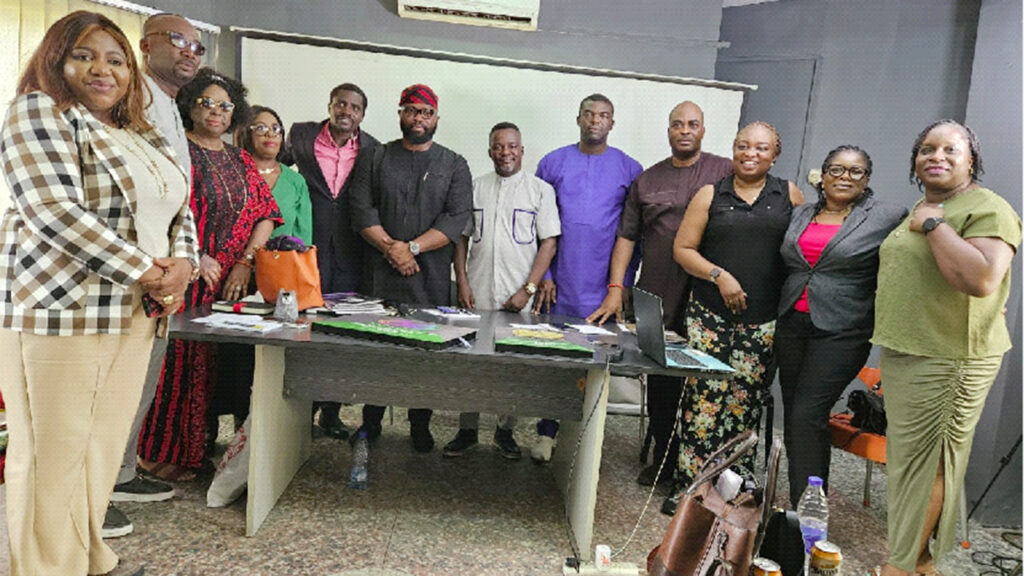
The interventions by Lagos State Governor, Mr. Babajide Sanwo-Olu, to cushion the effect of harsh economic realities have been received with mixed feeling by residents. While some commended the efforts, others have pick holes in the interventions.
Of note is that the economic realities are hitting hard on my many Nigerians, especially those at the lower realm of the ladder of the social demography. And many in that category have made public outcry about their plight.
So, it was not surprising that government, some concerned citizens and groups have responded to their plight by making concerted efforts to cushion the effect of the harsh economy on the average citizens.
One of such efforts was unveiled by Sanwo-Olu, who during the week rolled out multiple palliative interventions targeted at helping the average citizens cope with the realities of the times.
At the media chat, Sanwo-Olu, rolled out layers of measures targeted at vulnerable populations within the state to mitigate the impact of the hardship and bring about immediate ease.
Aside from new work schedule for civil servants, Sanwo-Olu announced a 25 per cent fare slash across the state-owned public transport channels as well as three layers of agricultural interventions.
He said the state government would distribute food items to 300,000 households as over 100 trailers of rice and other food items has been procured for the purpose.
The governor also said Sunday Market would be open in 42 communities across the state, where staple food would be available at subsidized rate, though shoppers would only be able to buy items not more than N25,000.
To promote good health at this time, Sanwo-Olu also reintroduced free child delivery programme for expectant mothers in all the state-owned General Hospitals and special maternity centres, while the State’s six health districts carry out bi-weekly community health mission over the next three months.
A resident, Shola Babatunde, commended the state government for announcing the various interventions, saying if well implemented as announced by the government it will bring succor to many troubled individuals and homes. He, however, said the government must ensure that the foot items are not diverted while political cronies should not hijack the open weekly market.
“I enjoyed the slash on transport fare in state owned transport system the last time the state government implemented. It really helped and many others. I observed then that many people were using state owned transport services. So, many people no doubt will be very happy using state owned transport services again, especially those who have stayed away after the fare was restored to its actual fare. ”
Babatunde suggested that the state government should curb the multiple collections being collected by transport unions from drivers. He said if the state government stops the multiple collections by transport unions there would be the ripple effect of drop in transport cost as well as reduced expenses on transport fare by residents.
Another resident, Abimbola Joseph, also applauded the state government but fears if the people the palliatives are meant for would really get them at the end.
“I hope this is not another opportunity for some people to enrich themselves at the expense of the poor masses. This is because sometimes lofty ideas like these are brought up by some people to enrich themselves because projects and programmes like this are not easily verifiable. So, it is easily to embezzle funds meant for such projects and programmes.”
She stated that the state governor who seems genuine considering the way he spoke while announcing the palliatives will ensure that local council chairmen and local politicians will not hijack the whole process, thereby denying the interventions the needed impact it should made on the populace.
Commenting on the interventions, Mojeed Alabi, said some of the interventions were not well thought-out, because the basic things to drive the interventions are not in place.
Alluding to the interventions around the health sector, Alabi said most of the health institutions for instance targeted for free deliveries among other treatments; there are no enough hands to attend to the patients.
He observed that many of the general hospitals and primary healthcare centres do not have adequate hands to handle the present traffic of patients, wondering what would happen with increased visits of patients to the facilities.
“Go to many of the general hospitals in Lagos today, they ration light, they have a lot of issues. They are short staffed, the staffs have not had any increments in salary for quite some time now, yet you want the same people who are already overwhelmed by the number of cases they see on daily basis. Do you want to kill them?
“Those are the things that we need to first of all look into. There are so many things that are not right with our system and we cannot say just for the love of populism, we just want to push the problem. So, when many of them eventually get to the hospital, definitely they are not going to be attended to.“These people are not going to have the opportunity, even if they do; it means that they are not going to get the best of services. These are things that ordinarily we should be looking at.
“I can mention so many general hospitals in Lagos today that they have to ration light very seriously that people will tell you that when they switch on the light by 12 that they will switch off their generator by 1:30. Is that a kind of process? They can’t run their theaters, they can’t. So, we have not resolved that.”
Alabi is also not happy with the idea of giving people free food. “I don’t see it as something we should encourage in this part of the world. We need serious empowerment. We are talking of empowerment by allowing people to go the bukka and as a result of that the cooks are going to make money in the restaurants. But do you consider the fact of how did we even get here in the first instance?” Alabi maintained that government must look beyond quick fix programmes and interventions as it would not have the needed long term impact.













